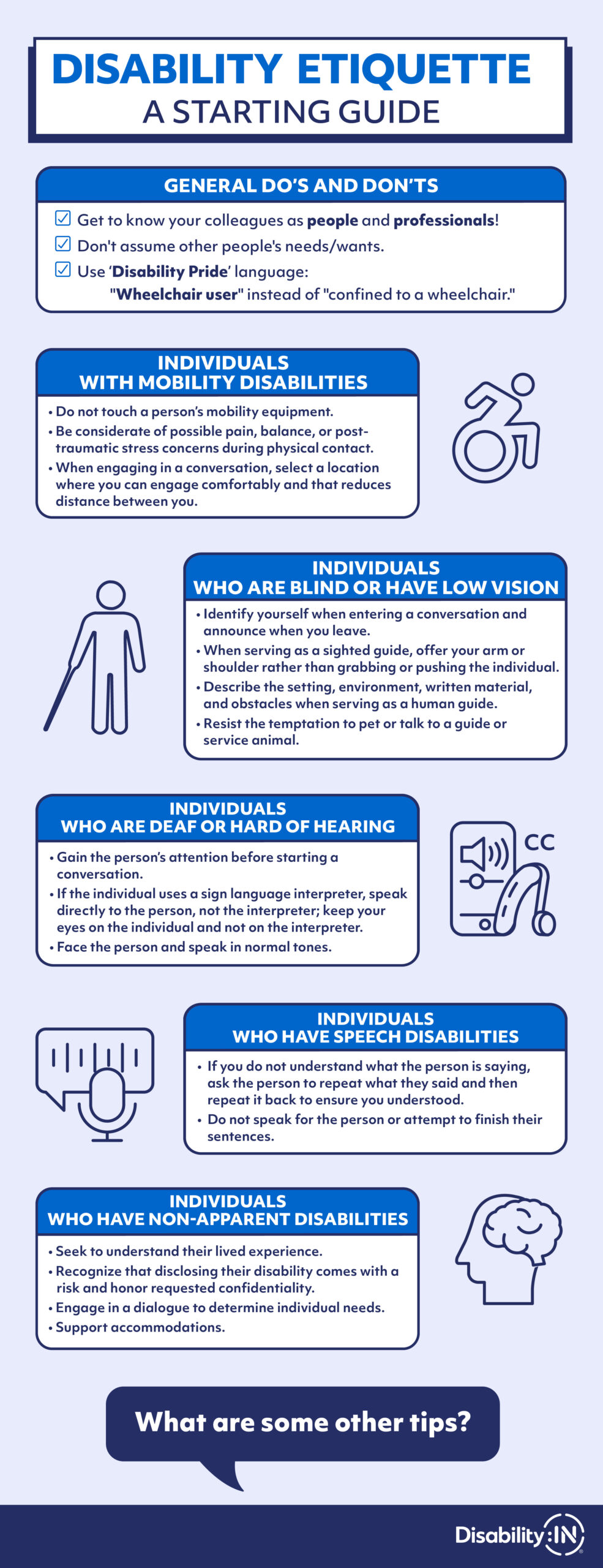
General Do’s and Don’ts
- Relax and enjoy getting to know your colleagues or guests as people and as professionals.
- Ask before you provide assistance.
- Do not assume that a person with an apparent disability needs assistance; offering assistance in broad terms such as “Let me know if you need anything” opens the door without assumptions of inability.
- Think in terms of ‘Disability Pride’ language using powerful words such as: wheelchair user as opposed to confined to a wheelchair or wheelchair person; person who is deaf or blind rather than deaf or blind people.
Individuals with Mobility Disabilities
- Do not touch a person’s mobility equipment.
- Be considerate of possible pain, balance, or post-traumatic stress concerns during physical contact.
- When engaging in a conversation, select a location where you can engage comfortably and that reduces distance between you.
Individuals who are Blind or have Low Vision
- Identify yourself when entering a conversation and announce when you leave.
- When serving as a sighted guide, offer your arm or shoulder rather than grabbing or pushing the individual.
- Describe the setting, environment, written material, and obstacles when serving as a human guide.
- Resist the temptation to pet or talk to a guide or service animal.
Individuals who are Deaf or Hard of Hearing
- Gain the person’s attention before starting a conversation.
- If the individual uses a sign language interpreter, speak directly to the person, not the interpreter; keep your eyes on the individual and not on the interpreter.
- Face the person and speak in normal tones.
Individuals who have Speech Disabilities
- If you do not understand what the person is saying, ask the person to repeat what they said and then repeat it back to ensure you understood.
- Do not speak for the person or attempt to finish their sentences.
Individuals who have Non-Apparent Disabilities
- Seek to understand their lived experience.
- Recognize that disclosing their disability comes with a risk and honor requested confidentiality.
- Engage in a dialogue to determine individual needs.
- Support accommodations.
